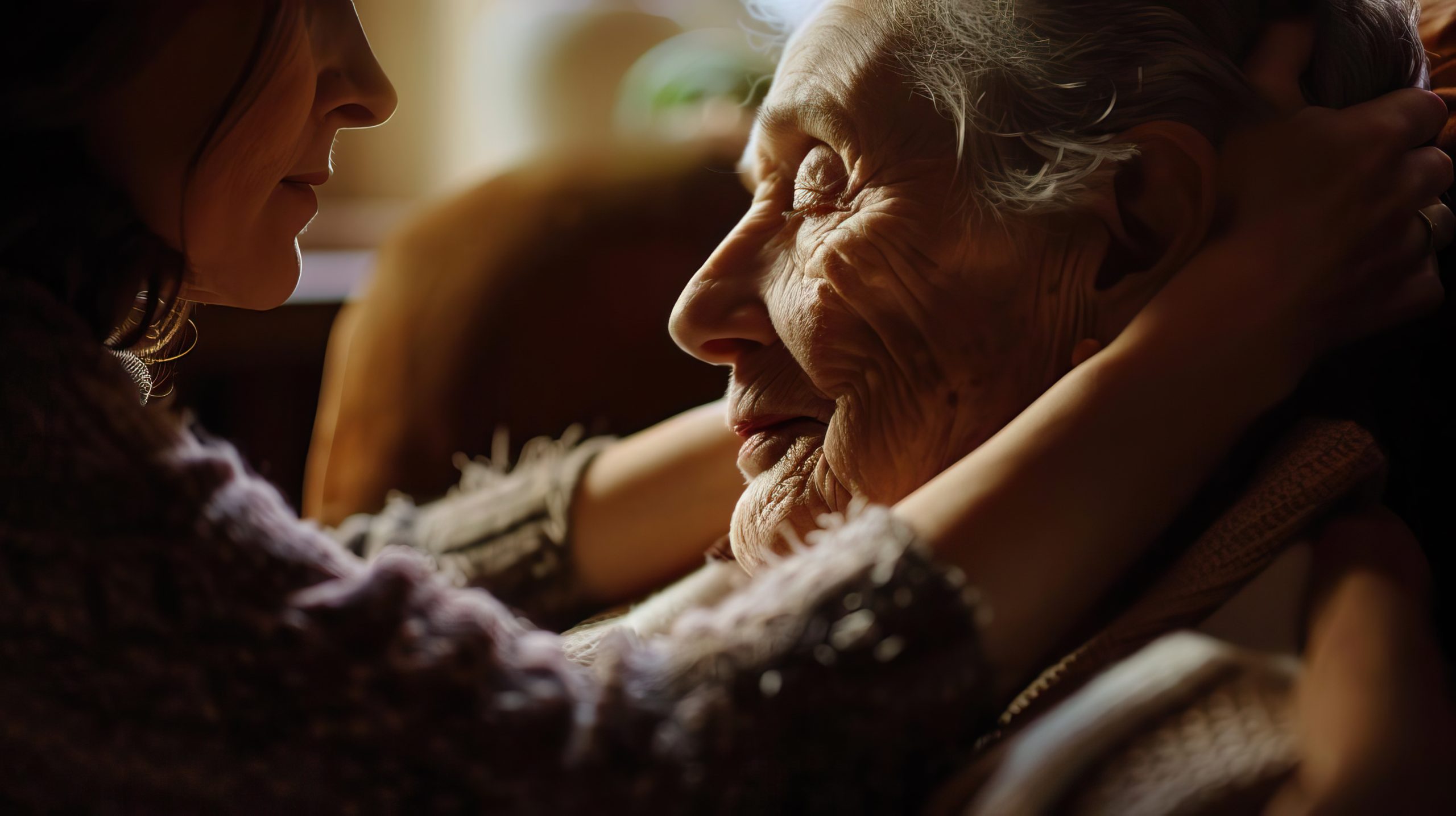Facing the final stages of a life-limiting illness can be one of the most challenging experiences for patients and their families. At Wings of Hope Hospice and Palliative Care, we understand the weight of these moments and are here to lighten the burden with compassionate, comprehensive care. Our approach is not just about managing symptoms. It’s about enhancing the quality of life when it matters most.
Our hospice care is tailored for those who have decided to focus on comfort rather than curative treatments, providing a peaceful and dignified conclusion to their life’s journey. For those in any stage of a serious illness, our palliative care services offer relief from symptoms and stress, improving the quality of life for patients and their loved ones.
At Wings of Hope, you will find a dedicated team of physicians, nurses, social workers, chaplains, and volunteers working together to address each individual’s physical, emotional, and spiritual needs. We are committed to supporting families through these trying times, offering guidance and emotional support, and helping them make informed decisions about end-of-life care. Choosing Wings of Hope means selecting a partner who will honor your values and preferences, ensuring comfort and dignity every step of the way.
Understanding Hospice Care

Hospice care represents a specialized form of support for individuals in the final phases of a terminal illness. Its fundamental purpose is not to cure but to offer comfort and maintain the highest quality of life possible for as long as life lasts. At Wings of Hope, we embrace this philosophy by providing compassionate care that focuses on relieving discomfort and symptoms rather than pursuing aggressive treatments that may cause undue strain in the final days.
Comfort Over Cure
The guiding philosophy of hospice care is “comfort over cure.” This approach prioritizes the patient’s comfort and dignity, addressing pain and other distressing symptoms while also supporting emotional and spiritual well-being. It recognizes the importance of spending one’s remaining time in peace and with family rather than in hospital settings undergoing intensive treatments. This philosophy also extends to families, as hospice care often includes comprehensive bereavement support and counseling services to help loved ones cope during and after the patient’s journey.
Qualifying for Hospice Care
Qualifying for hospice care typically requires a diagnosis of a terminal illness with a prognosis of six months or less to live if the disease follows its usual course. However, if patients live longer than six months, they can continue to receive hospice care as long as the hospice medical director or physician recertifies that they are terminally ill.
Accessing Hospice Care
Access to hospice care typically involves a referral, usually by a primary care physician or a specialist who understands the patient’s health status and agrees that hospice care is the appropriate choice. At Wings of Hope, our team works closely with healthcare providers to ensure a seamless transition to hospice care, respecting the patient’s and family’s choices and providing clear, compassionate guidance on how to access these essential services.
Preparing for the End-of-Life Stages

Preparing for the end-of-life stages of hospice care ensures that patients and their families face this challenging time with dignity and support. At Wings of Hope, we guide families through this transition, helping them recognize the signs and prepare emotionally, psychologically, and practically.
Recognizing the Transition to End-of-Life Care
The transition to end-of-life care often comes with specific signs that indicate a patient’s condition is approaching the final stages. These may include significant changes in physical abilities, such as difficulty walking or eating, increased sleep, less communication, and changes in vital signs like irregular breathing or heart rate. Recognizing these signs early helps families and caregivers make timely decisions about initiating hospice care, ensuring that the focus is on comfort and quality of life.
Emotional and Psychological Preparation
The journey towards the end of life is not only a physical process but also an emotional and psychological one. At Wings of Hope, we emphasize the importance of emotional support for both the patient and their family. This preparation might involve counseling, spiritual care from chaplains, or therapy sessions that help address feelings of fear, grief, and loss. It’s about creating a space where the patient and family members can express their feelings and receive support from experienced professionals.
Practical Steps for Family Preparation
Preparing for the end-of-life also involves practical considerations that can ease the emotional burden on the family. These steps include:
- Legal Preparation: Ensuring all legal documents such as wills, advance directives, and power of attorney are in place.
- Medical Preparation: Making decisions about the type and extent of medical interventions the patient prefers at the end of life.
- Personal Preparation: Addressing personal wishes for end-of-life care, including discussions about funeral arrangements or how they wish to be remembered.
Wings of Hope provides guidance and support in all these areas, helping families navigate the complexities of end-of-life preparation with compassion and respect. This preparation ensures that when the time comes, the focus can remain on sharing meaningful moments together rather than managing crises.
Comprehensive Care Approach

Hyper-detailed and ultra HD close-up of a tender caregiver with her hands on the shoulders of a senior woman inside her home, with a blurred surrounding, capturing the warmth and care in stunning 32k resolution
Comprehensive care in hospice involves a holistic approach that addresses not just the physical symptoms of the patient but also their emotional, psychological, and spiritual needs. At Wings of Hope, our interdisciplinary team collaborates closely to provide this all-encompassing care, ensuring that each aspect of the patient’s and family’s needs is met with sensitivity and expertise.
Interdisciplinary Team Roles and Responsibilities
Our hospice care team includes a variety of professionals each bringing their specialized skills to cater to the diverse needs of our patients. This team typically comprises:
- Physicians who oversee medical care and symptom management.
- Nurses who provide direct patient care, manage symptoms, and educate families.
- Social Workers who assist with emotional support and logistical planning.
- Chaplains who offer spiritual support regardless of religious beliefs.
- Therapists (such as physical, occupational, and speech) who assist in maintaining comfort and functionality.
- Volunteers who offer companionship and respite for families. Each member plays a role in creating a comprehensive care plan that reflects the patient’s and family’s wishes and needs.
Pain Management and Symptom Control Techniques
Effective pain and symptom management are central to hospice care, focusing on preserving dignity and enhancing quality of life. Our team uses various techniques, including medication, physical therapies, and alternative methods like massage or aromatherapy, tailored to each patient’s specific needs and medical conditions.
Psychological and Spiritual Support
Recognizing that end-of-life care impacts more than just the body, Wings of Hope provides robust psychological and spiritual support. Our counselors and chaplains work to ensure that patients and families can find peace and closure, addressing emotional distress, fear, or existential questions through counseling, therapy, and spiritual care.
Incorporating Personal and Cultural Preferences
Understanding and respecting each patient’s unique cultural, personal, and spiritual values is a cornerstone of our care approach. Wings of Hope ensures that these preferences are integral to each care plan, involving dietary restrictions, language needs, cultural rituals, or specific end-of-life ceremonies. This personalized approach honors the patient’s life and legacy, making the final days as meaningful as possible.
This comprehensive care approach at Wings of Hope ensures that every aspect of hospice care is delivered with compassion, respect, and professionalism, allowing patients and families to focus on what truly matters during these profound moments.
Communication Strategies
Effective communication is a cornerstone of quality hospice care, serving as the bridge between patients, families, and healthcare providers. At Wings of Hope, we emphasize clear and compassionate communication to ensure that everyone involved feels heard, respected, and supported throughout the end-of-life journey.
Clear and Compassionate Communication
It’s essential to approach conversations with sensitivity and openness, allowing patients and their loved ones to express their feelings, fears, and desires openly. Our team is trained to listen actively and respond with empathy, ensuring that communication is informative and comforting.
Tips for Communicating with Someone in End-of-Life Stages
- Use simple, clear language and speak gently.
- Allow the person time to process information and respond.
- Be present emotionally; sometimes, just being there is more powerful than words.
- Avoid forcing conversations; let the patient lead in terms of comfort and readiness.
Discussing Difficult Topics
Difficult conversations about DNR orders, funeral planning, and legacy projects are handled with utmost care. We guide families in approaching these topics delicately and ensure that the patient’s wishes are honored in every discussion. This approach ensures that all decisions are made with dignity, aligning with the patient’s values and life philosophy.
Family and Caregiver Support
In hospice care, the support and involvement of family and caregivers are crucial. At Wings of Hope, we recognize their significant role in the patient’s care journey and strive to empower them with the support and resources needed to navigate this challenging time.
Role of the Family in Hospice Care
Family members are often involved in day-to-day care, decision-making, and providing emotional comfort to the patient. Wings of Hope partners with families, offering guidance and education on effectively caring for their loved ones while honoring their wishes. This collaboration ensures that care is continuous and consistent, whether administered by our staff or family members at home.
Managing Caregiver Stress and Emotional Toll
The emotional and physical demands of caregiving can be overwhelming. Recognizing this, Wings of Hope provides strategies and support to manage caregiver stress. Regular check-ins, educational resources, and practical tools are available to help caregivers maintain their well-being while managing caregiving responsibilities.
Support Resources for Caregivers
Wings of Hope offers a range of support resources to alleviate the burden on caregivers:
- Support Groups: These provide a space for sharing experiences and finding mutual support among peers facing similar challenges.
- Counseling Services: Professional counselors help caregivers address feelings of grief, stress, and burnout.
- Respite Care: We offer services to give caregivers a necessary break, allowing them some time to rest and recharge.
The Final Days
As the final days approach in hospice care, understanding what to expect and how to create a comforting environment becomes the focus. At Wings of Hope, we ensure that families are well-prepared to handle these moments with grace and dignity.
What to Expect Physically and Mentally
In the final stages of life, patients may experience various physical and mental changes that signal the body is slowing down. Physically, they may show increased fatigue, decreased appetite, and changes in breathing patterns. Mentally, there might be less clarity in thinking, more rest periods, and possibly less communication. Recognizing these signs helps families and caregivers anticipate needs and adjust care accordingly.
Creating a Comforting Environment
Creating a serene atmosphere can significantly ease the final days for both the patient and their loved ones. This involves:
- Keeping the environment peaceful with soft lighting and quiet spaces.
- Playing gentle music or sounds that the patient enjoys.
- Ensuring comfort with appropriate bedding and room temperature.
- Personalize the space with favorite items or pictures to evoke pleasant memories and feelings.
Role of Hospice Care in Managing the Last Moments
Hospice care plays a vital role in managing these final moments with dignity and respect. Our team at Wings of Hope provides continuous support, ensuring that pain and symptoms are effectively managed. We also assist in facilitating any spiritual or cultural rituals that the family and patient deem significant, ensuring that these final moments are spent in a manner that honors the patient’s life and choices.
This attentive and respectful approach ensures that the final days are as comfortable and meaningful as possible, providing peace for the patient and closure for the family.
After the Passing
After the passing of a loved one in hospice care, families face a multitude of emotions and tasks that can be overwhelming. At Wings of Hope, we provide guidance and support to help families navigate this difficult period with compassion and dignity.
Handling Immediate Tasks After a Patient’s Death
Immediately following the passing, several practical steps need attention. Wings of Hope assists families in handling these tasks, which include:
- Notifying the appropriate family members and friends.
- Coordinating with a funeral home for the care of the body.
- Handling necessary paperwork, such as death certificates and other formalities. Our team ensures that families understand each step and have the support needed to manage these tasks without feeling overwhelmed.
Grief and Bereavement Support for Families
Grief support is a cornerstone of our service at Wings of Hope. We provide ongoing bereavement support through counseling, support groups, and resources to help families cope with their loss. Our bereavement counselors are available to assist through the stages of grief, offering a compassionate presence and practical advice on dealing with loss and moving forward.
Celebrating the Patient’s Life and Legacy
Honoring and celebrating the life of a loved one is an important part of the healing process. Wings of Hope encourages families to share stories, hold memorial services, or participate in rituals that reflect the values and interests of the deceased. These celebrations can be personalized to truly reflect the unique life of the patient, ensuring their memory is honored in a meaningful way.
Final Thoughts
Navigating the end-of-life stages with a loved one is a profoundly intimate and challenging journey. At Wings of Hope, we strive to provide the comprehensive support and compassionate care needed to manage this period with dignity and respect. From understanding the physical and mental changes during the final days to creating a comforting environment and managing the practicalities after passing, our dedicated team ensures that every aspect of hospice care is covered thoughtfully and thoroughly.
We recognize the emotional weight carried by families and caregivers during this time and are committed to offering robust support systems, including grief counseling and bereavement services. Our goal is to help families honor and celebrate the life and legacy of their loved ones in ways that reflect their values and preferences, providing a meaningful closure.
We encourage anyone facing the prospect of hospice care to reach out to hospice organizations like Wings of Hope. Gaining a deeper understanding of the available services and support can make a significant difference in the end-of-life care experience. Remember, you are not alone in this journey; resources and compassionate professionals are ready to assist and guide you every step. For more information and to explore how hospice care can help ease this transition, please do not hesitate to contact us.





